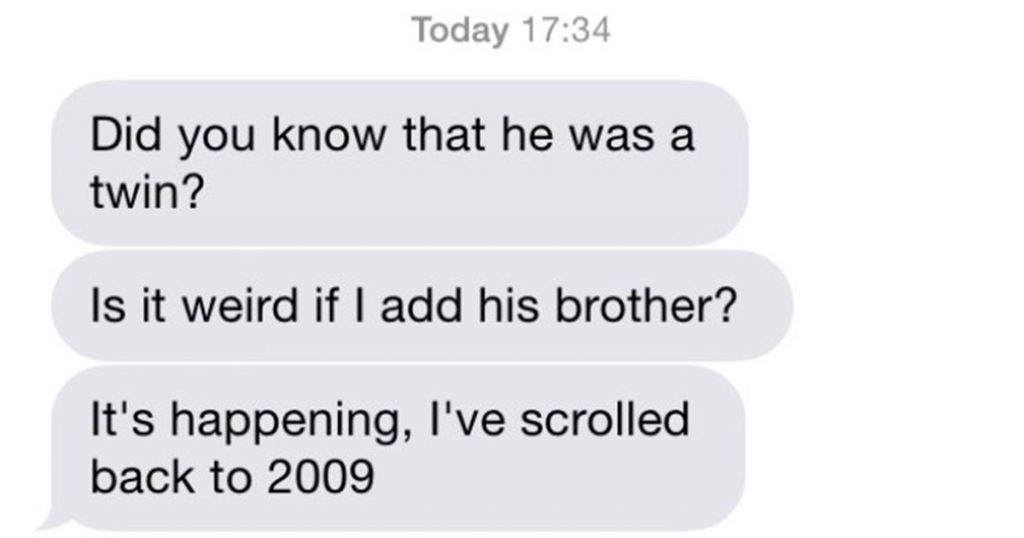
If you’re not gonna read and critique this message I’m sending to a guy, are you even my friend?
You’re here for peer review now do your job
“Walking with a friend in the dark”, Helen Keller once said, “is better than walking alone in the light”. I can concede, of course, that when Helen Keller said that she probably didn’t mean what I take it to mean, but I think had she lived today she would have intended it to mean: “sending clueless texts with your friends to the person you want to get with is better than going it alone”. I think it’s fair to say that’s what she might have meant.
Friends mean many things to us, but of course perhaps the most important of all the functions they play – more important than confidant, emotional support or drinking buddy, is the role of peer reviewer. Because where would we be in this cruel world if we didn’t have friends to check our texts to guys before we send them? We’d be lost.

It may seem like a trivial task, but it’s so much more than that. It’s an art form. It’s a science. It’s what separates us as a species. The generally accepted scientific formula to this beautiful science is thus: you should include no less than one friend, and no more than two. Three would be a push, if they offered sage advice which balances each other out then obviously that’s golden, but more often than not sending a screenshot down a group chat is a recipe for disaster (also you are definitely overthinking what you’re doing if you’re sending it down a double figures group chat).
“Look, I don’t want people to think I need help”, a friend told me. “But I do need advice. It’s often advice like ‘do I send this meme?’ to be honest.” (The answer is always yes). “Should I emoji or nah?” (The answer is always no).
“Two opinions is max” another told me. “That way if you don’t like one opinion go with the other and you still feel like you’re getting the help you need. Any more than two though, then too many people are getting involved, empirically speaking. The more people get involved the closer we come to the end text looking nothing I would have sent in the first place.”

The details are intricate. The conversation – now read this bit in a reverent David Attenborough-esque tone of voice – is in its infancy, and the atmosphere rests on a knife edge. The slightest disturbance could set the path for disaster. It’s an evolutionary strategy therefore, to realise we can’t do this alone. We band together, we form this social peer-review and we pay it forward, someone will do it for you, you will do it for them when they’re in the same precarious sexual situation. It’s comforting and a necessary means for social survival.
If you don’t do it then sorry, we’re not friends.





















